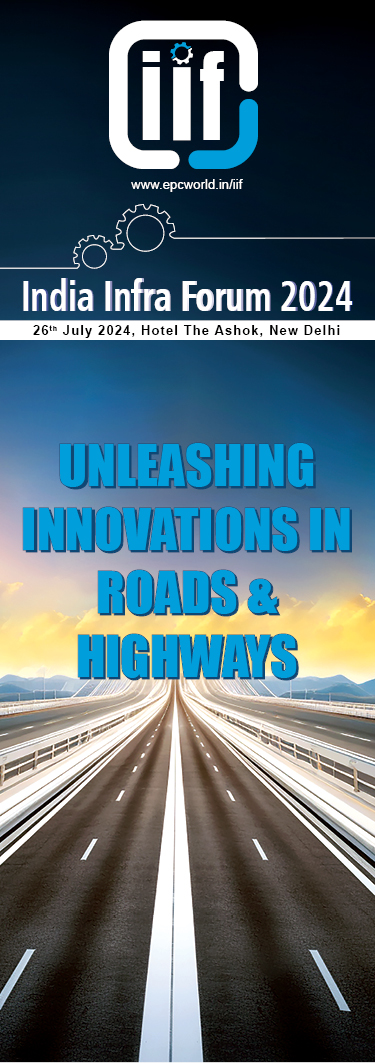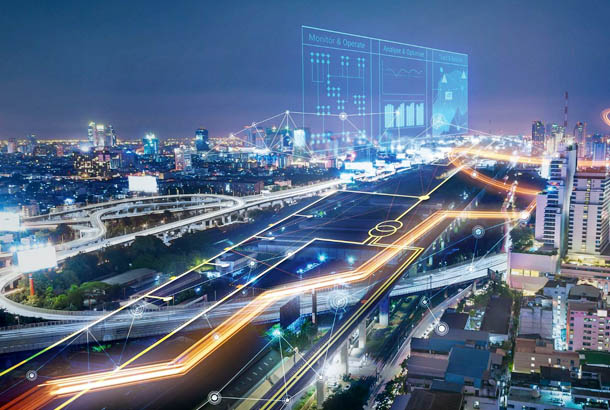With a pandemic-hit economy cruising back for revival, Smart, Self-Reliant Cities emerge as an indispensable need in the world of 'New Normal'. EPC World takes a closer look onto the Mission Smart Cities and trends driving the program as per the new paradigms.
The year 2020 could be among the most challenging historic years with mankind witnessing one of its most uncertain pandemic, Covid-19. With economies worldwide still struggling for a revival – socio-politically and economically – the role of digitally driven and self-reliant societies emerged as a new way of survival.
In India, particularly, few among the Smart Cities like Agra and Kakinada embraced the digital platforms and efficiently functioned on a survival mode as per the 'New Normal'. Both the cities collaborated with internet service providers for enhancing individual capacities, set up Covid response task-forces, and centralized control room, established well coordination between civic bodies and local administration forces. Moreover, one-stop-shop real time platforms were set up to integrate healthcare services – tele-consultation and tele-medicine. The importance of digitally equipped, smart, self-reliant and sustainable cities has hence become a need of the hour. A similar approach was also seen in other cities like Kota, Gandhinagar and Jaipur. This evidently shows that the role of Smart Cities is crucial and is an indispensable need for the New India and also as a necessity for the transformed lifestyle.
As per the recent findings by the World Bank, India's growth story is expected to accelerate to 5.4 per cent in FY2021-22. Considering the new dynamics, Smart, Safe and Self-Reliant cities will have a crucial role to play in driving this momentum.
The Fund-Pool
Infrastructure, like all the earlier macro and micro financial announcements, remained as a core focused area in Budget 2021 by the Modi-led government. Though the Mission Smart Cities 2.0 per say did not witness a sea-change in the funding resources allotted as per the Budget, the dedication of financial aid to scale up infrastructure was clearly reflected. Total funds earmarked for urban development programs scaled up to ₹ 54,581 crore (FY2021-22) from ₹ 40,040 crore (FY2020-21), reflecting an increase of 9.07 per cent. The Government also mulls over its another ambitious program of Swath Bharat 2.0, with an outlay of ₹ 1.41 lakh crore for the second phase – to be implemented over a five years period.
The expansion of rail-based mass transit systems, to be implemented for tier-I and tier-II cities through MetroLite and MetroNeo technologies are among the other promising moves set by the Government. The Budget also announced a fruitful fundpool for the extension of metro services in cities like Chennai (₹ 63,246 crore), Nagpur (₹ 59,575 crore), Bengaluru (₹ 14, 788 crore), Nashik (₹ 2,092 crore) and Kochi (₹1,957 crore). Additionally, an innovative PPP (public-private partnership) based model was put forth to augment the city bus services – under which 20,000 new buses is said to be added with a fund outlay of ₹18,000 crore. The increased focus on National Infrastructure Pipeline and fast tracking in the execution of economic corridors, Make in India, Bharatmala, Sagarmala is expected to give a thrust to the Smart Cities mission.
Expert Views
The Budget FY2020-21 saw a sharp cut in the allocation of funds for Smart Cities mission by ₹ 3,050 crore from the original allocation of ₹ 6,450 crore. AMRUT (Atal Mission for Rejuvenation and Urban Transformation) another promising drive for the upliftment of urban clusters also could not gain much favor from the Budget announced. The fund allocation for AMRUT faced a modest drop of ₹ 850 crore in the fund allocation from the original ₹ 7,300 crore. The fundpool for both the missions remained unchanged as in the previous financial years. However, market analysts opine that the needed push for vital components like transportation, digital focus and creating economic hubs etc. in Budget is a positive move in leveraging the interest of stakeholders towards participating in the Smart City drive.
"Many Indian cities are facing significant operational and sustainability challenges stemming from rapid urbanization and population growth. These include challenges in city administration, unexpected crises, infrastructure issues, environmental and safety concerns, and the expanding needs of citizens. The Government's 100 Smart Cities Mission is geared towards meeting these challenges and we see a huge opportunity for Honeywell. One of the key challenges in developing a smart city is to bring all stakeholders on the same page – from the strategy phase through project planning, and coordination among various departments for smooth execution," opined Ashish Modi, Vice President & General Manager, Honeywell Building Technologies – India, ASEAN, Korea while commenting on the need for Smart cities.
Pointing out the challenges involved in this move, he further added, "Smart cities are built on the foundation of connected technologies. It is important to seamlessly integrate disparate systems and technologies to make cities smarter, safer, and more liveable. Citizen awareness and engagement too are critical to make cities smarter. Another important consideration is earmarking tenable budgets and tying up funding for smart city projects. Equally important is the need to keep an eye on the city's environmental sustainability. Lastly, with increased adoption of digitalization, including IoT and IIoT, it is imperative to keep critical infrastructure safe from cyber-attacks, and have in place a strong and updated cyber defence mechanism."
Emphasizing on the need for a planned approach, Atul Datta, Associate Director, Egis India and Project Manager – Smart Cities shared, "Smart city is an entrepreneurial city. There is a bidirectional relationship between entrepreneurship and smart cities. First, entrepreneurs initiate technological interventions that help cities undergo socio-technical transitions and become smart cities. Second, the technologies being adopted in cities generate data which then helps enterprises to explore new opportunities. We are far behind the stage where all the cities are self- sustainable, producing zero carbon waste, automated services and no manual dependency are the initial factors to be achieved in totality We still need to fully manage the complexity of urban living, and problems ranging from pollution, overcrowding and urban sprawl to inadequate housing, high unemployment, resource management, environmental protection, and rising crime rates."
Reflecting a similar sentiment on the challenges involved he further pointed out, "Some of the long standing urban challenges include housing, especially for low-income populations, infrastructure provision, and the delivery of a variety of services including water, sanitation, education and health which is the prime agenda of determining the city as SMART. There are enormous of aspects and variants to achieve the Mission of Smart city. ICT development is the core but the smartness of the city does not end there until unless the above factors are been taken care of. The self-sustenance of the city and the betterment of living quality of each one is after all is our agenda and we are on the right track."
Throwing light upon the need to embrace new construction modes and technologies Anubhav Gupta, Chief Strategy Officer, APL Apollo Tubes Ltd viewed, "Smart Cities play a crucial role in India's construction activity. Smart Cities mean Smart Buildings for which Smart Construction is a necessity without compromising on the eco-friendliness of structures. The conventional construction processes like usage of concrete or cement often results in pollution (both air and water) and is an alarming threat to our environment. Cities like Delhi, Chennai and Bengaluru are victims of the environment pollutants. Whereas, usage of steel tubular construction processes ease the hassles involved and delivers in a more feasible, economically viable and energy efficient manner. Steel constructions are booming on a global scale as well. Such technologies can drive and contribute immensely towards the creation of Smart Cities in India."
A recent advancement in the mission Smart Cities was seen in the state of Kerala, wherein a dedicated special purpose vehicle (SPV) – Smart City Thiruvananthapuram Limited (SCTL) – created to transform the state's capital city Thiruvananthapuram to a Smart City. One among the cities under the '100 Smart Cities' mission, the task is now allocated to NEC Corporation India. As per the contract awarded NEC will created an integrated command and control centre. And will also aid SCTL to utilize IT based real time platforms to modernize civic operations like traffic management and control, traffic law enforcement, security and safety, e-governance, municipal operation, and disseminate information to a smart and smooth city-wide citizen friendly mode of operation. Commenting on the achievement the company spokesperson in a recent media interaction was quoted, "This new project reflects our commitment to co-creating solutions of the future with the Government by creating a seamless and robust city infrastructure. NEC, with our expertise in designing and implementing smart city projects around the world, will continue to innovate and deliver new solutions that benefit cities and their residents as we navigate the booming digital economy."
Considering these sentiments and the governing bodies' decision towards transforming and face-lifting urban areas – the rate of human migration and accumulation in these urban clusters is only expected to scale up. Despite the ongoing pandemic situation, which witnessed a reverse migration initially (from cities to rural areas) the thirst of exploring urban areas for means of survival is anticipated to only shoot up. As per the market studies the population density of urban population is expected to be far more than double the current size and this calls for an immediate attention and action. The future of India's socio-economic growth hence lands largely on the hands of internet and IT-enabled ecosystems. The role of such tech-based solutions in create Smarter and Self-Reliant lifespaces hence has become more crucial, especially with the human civilizations adapting to a pandemic driven 'New Normal'.






